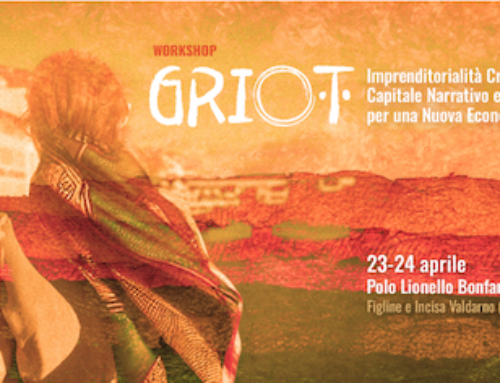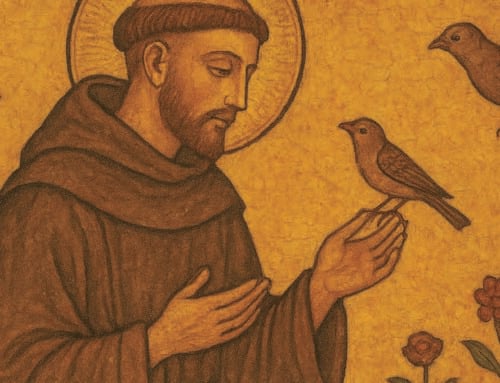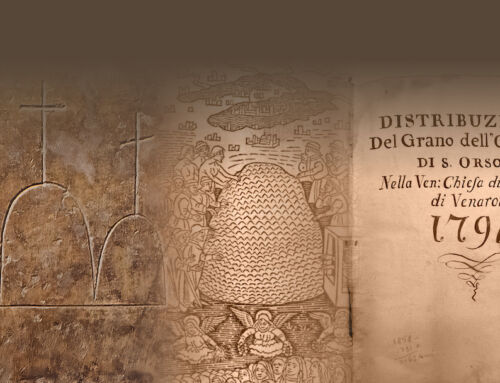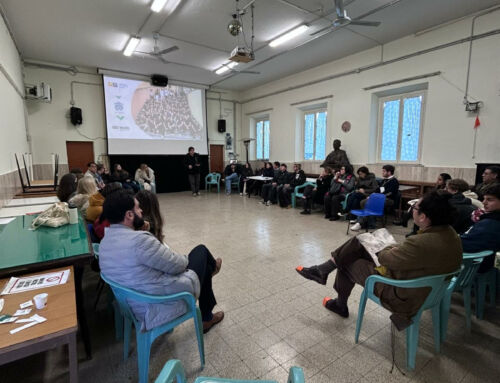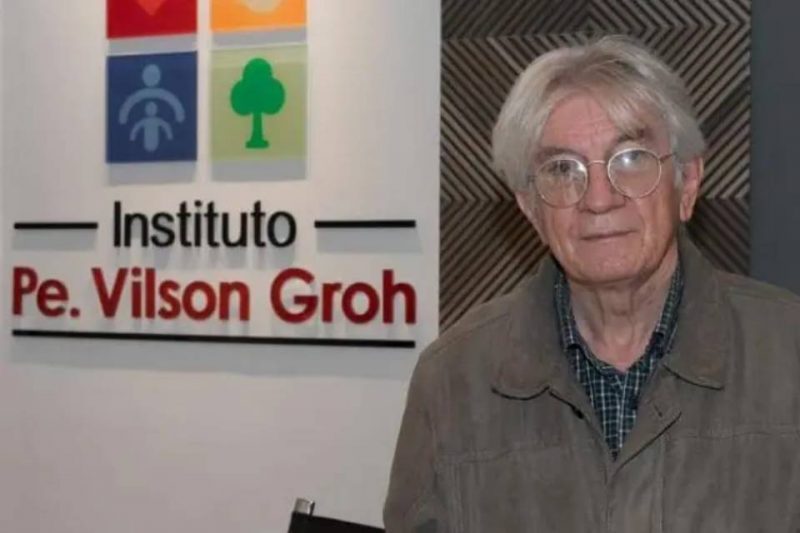
Dreaming with your feet on the ground (from the periphery)
by Mariana Reis Maria and Tatiana Fleming
Vilson Groh is a Catholic Priest who lives on the hill of Mocotó, on the outskirts of Florianópolis (South of Brazil). In partnership with other civil organisations, he assists and promotes coordination to defend and guarantee the rights of vulnerable people.
He develops activities of education and social assistance in the peripheries of Grande Florianópolis and in Guinea-Bissau in Africa. Father Vilson will be in Assisi for The Economy of Francesco (EoF) Global Event, especially during the conference on 23rd September 2022. That is why we wanted to interview him to learn more about him.
- The projects that have already been achieved are the results of a three-year process. Father, could you tell us what you do on the outskirts of Florianópolis? How long have you been working in this place? What are the projects that are developed in the peripheries?
I started working on the outskirts of Grande Florianópolis when I was a student of theology in 1979. During this period, we had in mind this vision of Latin America and the Caribbean from the Puebla document that made a preferential option for the poor and for the youth. We assumed this option and it led me to seek the periphery as a locus theologicus, a locus socialis, and a locus mysticus, also from the point of view of the insertion and the incarnation of my ministry within the realities of the periphery, in the area of Grande Florianópolis. And then I began this process and went to stay in an area where I live to this day. It has been 40 years since I have lived on the outskirts.
All my priestly ministry was spent within the periphery. My work in the first years was about problems related to land, the right to life, and the citizenship of those who live in the peripheries. The first step was to rediscuss the social function of land in urban areas. Then we discussed the social function, that is, the right to citizenship. The right to citizenship in the city is linked to the “3L” Rights that Pope Francis stressed when he spoke to social movements, namely, the right to land, the right to lodging, and the right to a labour (Three T in Spanish, Tierra, Trabajo, Techo). We worked hard from the 1980s to 2000 to regularise, urbanise, and occupy free spaces to generate this perspective of life, land, housing, and work. Basically, we worked and still continue working in the territories facing this issue of the great social inequality in the country, from the point of view of the relationship between the centre and periphery of the country. In this relationship, we consider issues such as occupations and urbanization, and we discuss the construction of these territories. Our intention is to reflect on the social function of land as a pro-collective function, in the sense that the rights of the community are more important than the private right to housing and land, and we developed together. In the struggle of the country itself, the movement for housing became the movement of the homeless and then triggered in this country over time, public housing policies, the Statute of the City, and all re-discussions from this great milestone, which was also the Constitution of 88 and the constituent process that was also a well-elaborated work within the struggles of social movements. So, this is a work that, in the social field and in the field of the struggle for the right to the city, is a field in which we have been working throughout the life of these cities. Within this process, we opted for creating small community groups, namely the Basic Ecclesial Communities. And throughout my 40 years of ministry, my work was focused on the organisation of small communities.
My journey in this process was marked by a biblical text which is Matthew 25:35 and 41 which says “I was hungry and you gave me food, I was thirsty and you gave me drink, I was a stranger and you made me welcome, lacking clothes and you clothed me, sick and you visited me, in prison and you came to see me…in so far as you did this to one of the least of these brothers of mine, you did it to me.” And then understanding the causes of Jesus, that the causes of Jesus are our causes, and that our causes are greater than our lives, we journey down that path.
And now are together in this meeting, this whole process of the pact, the EoF, and the educational pact. Within this process, we then formulated a focal point, a priority that was education, the education of children, adolescents, and young people. This is what we experienced during these 40 years of managing projects in networks.
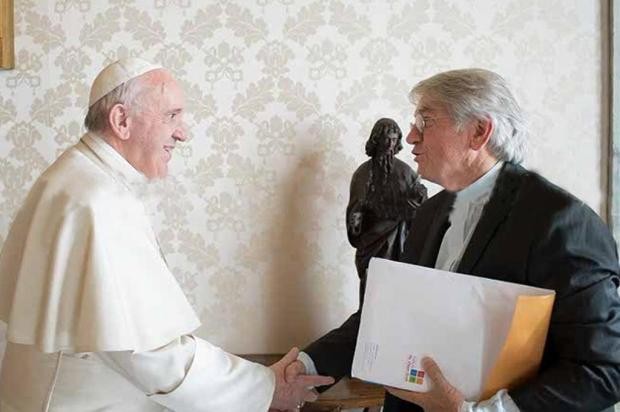
- And to build on the call of the Pope to “give a soul to the economy” that you quoted, what advice would you give young economists to better understand this?
From my point of view, young economists play a big role because they are producers of knowledge. And for me, the importance of young economists is their capacity to go from the field of these territories and this reality to immerse into the reality of the underprivileged and understand the reality based on the experience of the impoverished territories. It is their capacity to see from the territorially impoverished areas, from the point of view of the great cities of the world and, at the same time, from the great periphery of the world (which are those who are hungry, those who do not have drinking water, and who live where the environment has a strong impact, in such a predator capitalist structure). They are able to redesign the collective, that is, the common house as a place to access rights.
I am deeply convinced that young economists have a great role because from where they are, they can understand the option for the poor, which is the option of Pope Francis, and which is an evangelical option, but much more, it is an evangelical option for the face of the poor, who is deprived by the capitalist system. And from their place within universities, institutions, and companies, they can connect with reality and help wave a networked society. I believe a lot in networking, because networking weaves the narrative of the collective threads and engages, from there to working on this pact to resetting and redeeming the economy and making it an economy at the service of life. And when we talk about serving life, it is not only the service of destitute men and women but also the service of life on the planet, life in the common home, which includes all living beings. It is the understanding of the Encyclical Laudato si’, in which Pope Francis says that “everything is interconnected”, and that the “ecological dimension”, should be the new paradigm for us, a paradigm of interdependence, a paradigm of reconsidering Mother Earth.
Do not lose hope, keep hope! Be a hopeful youth! Keep hope in the vision of the utopia of Jesus Christ the great humanist and remember his action. The more we are human, the better we live. Immerse in reality. Be passionate about the EoF, with deep compassion, work with enthusiasm, and help rebuild this world with all the instruments and all the production of knowledge that you hold, as well as all the processes of research at the service of the EoF.
- We would like to know a little more about the project you named “House of Francis,” a project that has been spread by the EoF since its beginning. We would like to know a little more about how this idea came about. What does “House of Francis” consist of?
The proposal is that these “houses” may be laboratories, inserted into the local context and that they may weave and trigger a process of reflection in the territory, a reflection for the city and a deep reflection on the role and the political function of public management for example… the role of public policies, the role of social organisations and the culture of solidarity and the culture of rebuilding the city. I know Saint Francis has rebuilt and created groups in his day-to-day life. And Saint Clare, building on what he did, created groups as well. We wish to bring up to date in our world, real concrete “spaces” and “houses” where men can come and make themselves present, and improve their life in this perspective, reworking their life projects, and re-elaborating solution perspectives. Therefore, it is a light for the youth of the periphery as well. I hear the cry of youth from the periphery, looking at our country, where 60,000 young people still die every year, assassinated. This is the place to reflect on the death of Black youth. It is essential that we may create these “houses” as headlights where people can work on the issues of mystical, social issues, political issues, economic issues, and cultural issues. These houses, in my opinion, should be open houses, “macro ecumenic” houses, houses also for those who have no intellectual capacity, open to the spiritual dimension, and to those who are atheists. They should be inclusive houses, widely open, from the point of view of their reception. These Houses will be laboratory spaces, production spaces, and spaces of “immersion” within this process. This is already an experience that has been going on these 41 years and is now accumulating more and more inputs in this direction from people able to enhance, undoubtedly this process. And I believe that Brazilian youth is increasingly appropriating this process, and making, imagining, a great worldwide network of houses of Francis and Clare. I can say, “I wish to go to the Philippines and spend my holiday there,” “I wish to go to Europe and spend some time of my life there,” “I wish to go to Africa and spend my holidays there,” “I wish to go to Central America, Latin America, and spend my holidays” So, it is an internationalisation of the presence of the youth, full of ideas. I am sure that will give the world a great revolutionary prospect for being passionate afresh by the Common House. In my opinion, Houses of Francis should share this inspiration of being simple spaces that help impact the heart of daily life and to engage more and more people in rebuilding humanity from the bottom. Pope Francis says in Fratelli Tutti (§78), to work step by step from the bottom, creating, generating a fresh gaze at the world, not towards a closed, but an open horizon. So, it is a once-in-a-lifetime opportunity for us as young people in this country… And the Pope says something particularly important: you are young, we need your legs to run, you need our aged wisdom to shine the light, let us not lose our way.

